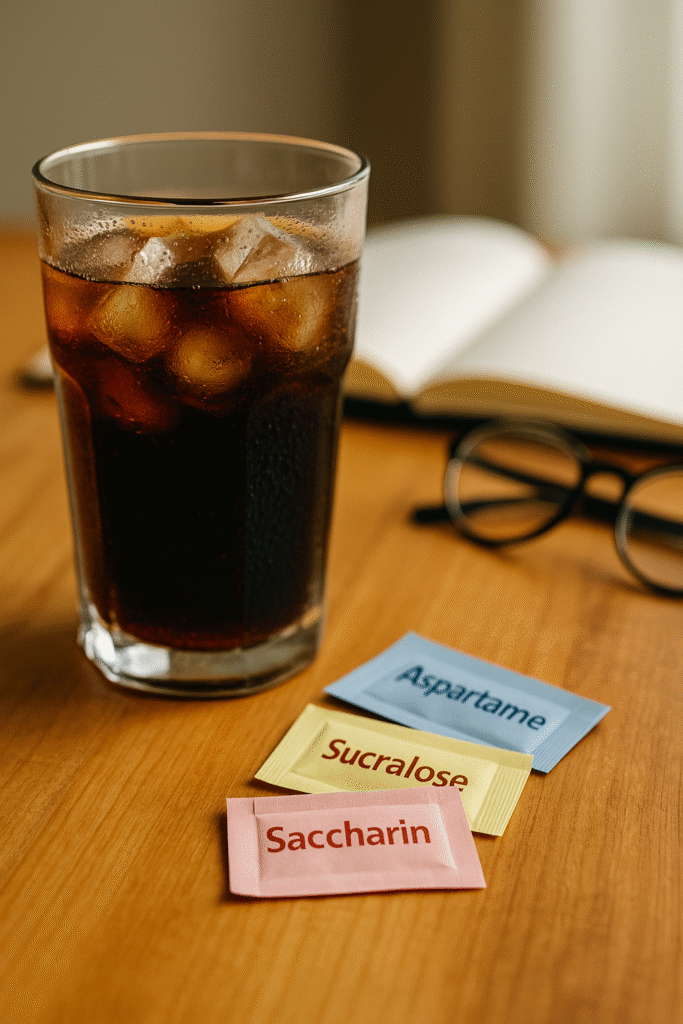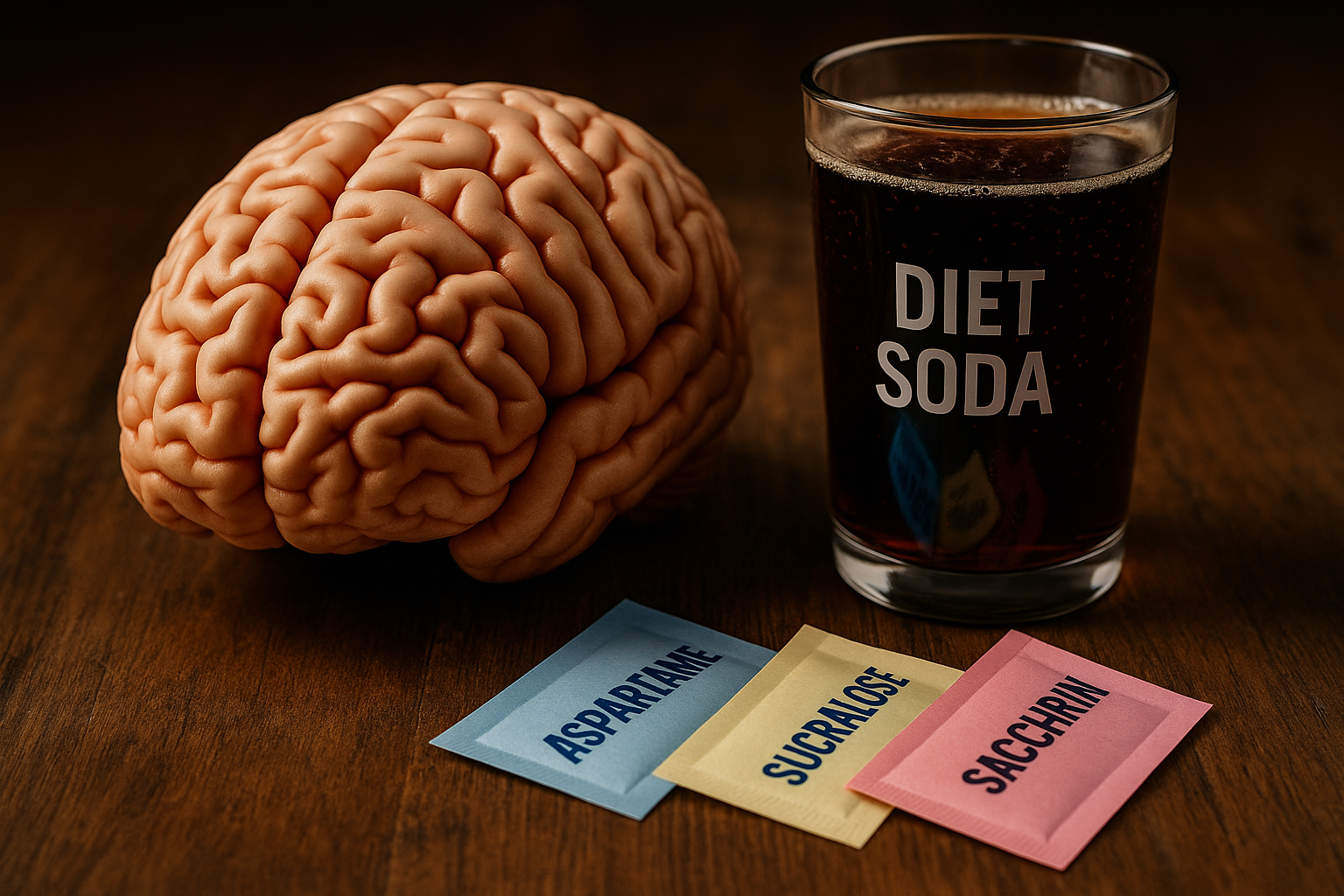
Artificial sweeteners, also known as sugar substitutes, are widely used in diet sodas, sugar-free yoghurts, and other low-calorie foods. These popular sugar alternatives are often promoted as a safe way to cut calories, control blood sugar, and reduce tooth decay. However, new research on artificial sweeteners and brain health suggests that frequent use may be linked to faster brain ageing, memory loss, and cognitive decline, raising questions about long-term effects such as dementia risk and other side effects.
Artificial Sweeteners and Cognitive Decline — What Research Shows
A study published in Neurology analyzed the diets of more than 12,000 adults in Brazil over an eight-year period.
Key findings:
- High intake of artificial sweeteners was linked to 62% faster cognitive decline.
- Memory and verbal fluency were most affected.
- The effect was stronger in younger adults under 60.
- People with diabetes showed increased risk.
Sweeteners included in the study:
- Aspartame
- Saccharin
- Sucralose
- Acesulfame-K
- Erythritol
- Sorbitol
- Xylitol
All were linked to cognitive decline except tagatose.
Brain Ageing and Artificial Sweeteners — Daily Consumption Levels
The study found that consuming around 191 mg of artificial sweeteners per day — roughly equal to one can of diet soda — may accelerate brain ageing by up to 1.6 years. Researchers link this level of daily sugar substitute intake to faster cognitive decline, reduced memory performance, and possible long-term risks such as dementia and other brain health issues.
| Daily Intake | Equivalent Example | Impact on Brain Health |
|---|---|---|
| Low (below 50 mg) | Minimal consumption | Lower risk of decline |
| Medium (100 mg) | Half a diet soda | Moderate risk |
| High (191 mg+) | One can of diet soda | 62% faster decline |
FDA Guidelines on Artificial Sweeteners and Sugar Substitutes
To provide clarity, the FDA has published a list of artificial sweeteners and sugar substitutes that are considered safe when consumed within the acceptable daily intake (ADI). This FDA-approved list of sugar alternatives, including popular brands such as Splenda, Equal, and Sweet’N Low, helps consumers understand which sugar substitutes are safe, what their side effects might be, and how they fit into a balanced diet without increasing the risk of cognitive decline or brain ageing.
The following table shows the most common FDA-approved sweeteners and their brand names:
| Sweetener | Brand Names | Status (FDA) |
|---|---|---|
| Aspartame | NutraSweet, Equal | Approved |
| Saccharin | Sweet’N Low | Approved |
| Sucralose | Splenda | Approved |
| Acesulfame-K | Sweet One, Sunett | Approved |
| Stevia leaf extracts | Truvia, PureVia | Approved |
| Monk Fruit extract | Luo Han Guo | Approved |
Health Benefits vs Health Risks of Artificial Sweeteners

Artificial sweeteners can be helpful for reducing sugar intake, but they also come with possible downsides.
Here is a clear comparison of health benefits and potential risks:
| Health Benefits | Health Risks |
|---|---|
| Lower calorie intake | Possible cognitive decline (new studies) |
| Do not raise blood glucose | Digestive issues (sorbitol, xylitol) |
| Reduce risk of tooth decay | Possible links to stroke and heart disease |
| Useful for short-term weight management | Gut microbiome changes under investigation |
Artificial Sweeteners and Brain Ageing in the News
The latest research adds to a growing debate about the safety of artificial sweeteners. While health agencies such as the FDA continue to label sugar substitutes as safe within recommended limits, new evidence suggests that heavy daily use may accelerate brain ageing and affect memory in younger adults.
For readers, the takeaway is simple: artificial sweeteners can still be part of a balanced diet, but moderation is key. Choosing whole foods, fruits, and natural options remains the healthiest approach. As scientists continue to investigate the long-term effects of sugar substitutes, this topic will remain in the headlines — shaping how we think about sweetness and health in the years ahead.
👉 If you enjoy exploring surprising stories, check out our feature on Historic American Ghost Towns that you can still visit today.
